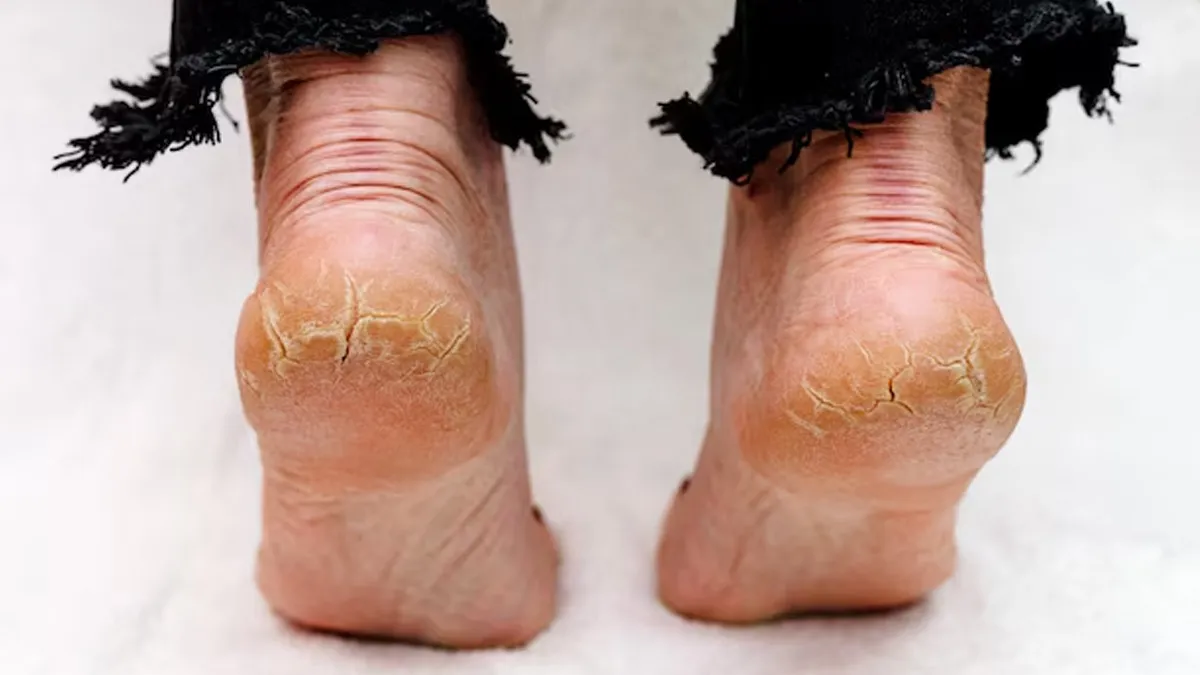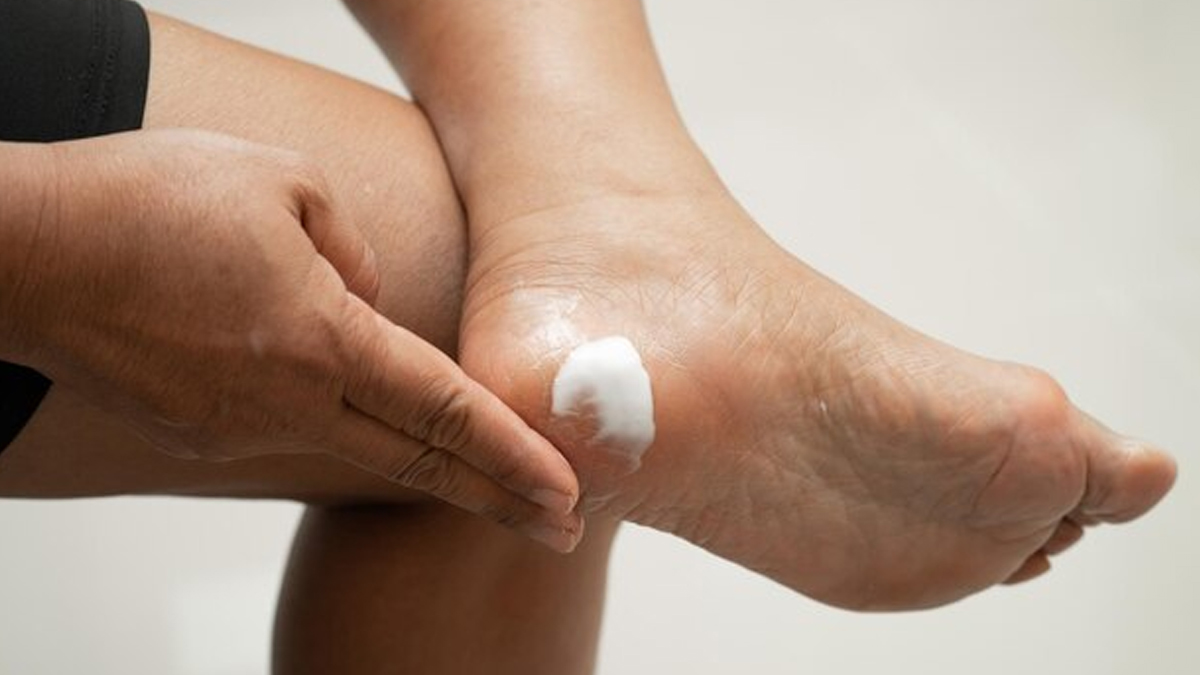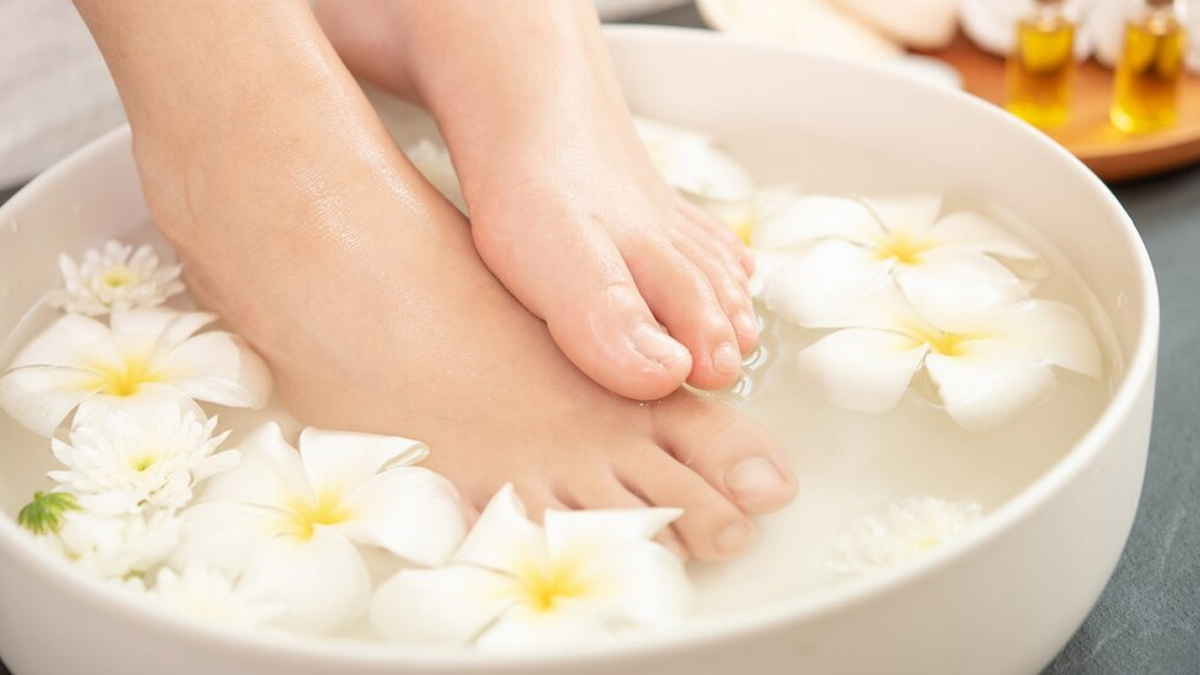
We’ve all dealt with dry, cracked skin at some point. Skin fissures, those painful cracks that appear on our hands, feet, elbows, or knees, can be especially uncomfortable. These cracks often show up during cold weather or when our skin is exposed to harsh conditions. The good news is that there are several natural remedies and lifestyle changes you can adopt to effectively manage and heal skin fissures.
Table of Content:-
According to the Cleveland Clinic, skin fissures are dry, cracked patches of skin that become thicker as time passes. These cracks may appear as small cuts or splits in the skin, with the surrounding area often becoming thickened and calloused. Fissures typically form on dry areas of the skin, such as the heels, fingertips, and between the toes.
Natural Remedies To Manage Skin Fissures
1. Keep Your Skin Moisturised

The most effective way to prevent and manage skin fissures is by keeping your skin well-hydrated. Natural oils, such as coconut oil, olive oil, or almond oil, can work wonders in providing moisture and nourishment to dry, cracked skin. These oils are rich in antioxidants and fatty acids that help repair the skin’s natural barrier, keeping it soft and smooth.
- Coconut Oil: Known for its antibacterial properties, coconut oil is a natural moisturiser that penetrates deep into the skin to hydrate and heal fissures. Apply it to the affected areas before bed and wear cotton gloves or socks to seal the moisture overnight.
- Olive Oil: This oil is packed with vitamin E, which helps promote skin regeneration. It also helps restore the skin’s elasticity, reducing the likelihood of future cracks. Massaging olive oil into cracked heels, elbows, or hands can provide immediate relief and soften the skin.
- Almond Oil: According to theInternational Journal of Research in Engineering, Science and Management (IJRESM), almond oil helps heal skin fissures by improving the skin's barrier function. Healthy fats in almond oil prevent skin from losing moisture.
Also Read: Troubled With Cracked Heels? Here's Why You Should Use Camphor To Treat Your Heels
2. Use Honey for Natural Healing
According to the IJRESM, honey is a natural moisturiser that helps heal cracked skin when applied. Additionally, it prevents skin infections due to its antibacterial properties. It also has antimicrobial properties that can help prevent infections, especially in fissures that have broken through the skin’s surface. Applying honey directly to the affected area can aid in healing and reduce inflammation.
3. Soak Your Skin in Warm Oil or Milk

Soaking cracked skin in warm oil or milk can provide instant relief and moisturisation. Both oils and milk are rich in natural fats that nourish and repair the skin.
- Warm Oil Soak: Warm olive or coconut oil can be used for a soak that hydrates and soothes the skin. Gently warm the oil, dip a clean cloth or cotton ball into it, and apply it to the cracked skin. After letting it sit for 10-15 minutes, rinse it off with lukewarm water.
- Milk Soak: Milk contains lactic acid, which can help exfoliate dead skin cells, while its fat content moisturises the skin. You can soak your feet or hands in a bowl of milk for about 15 minutes to soften the skin and aid the healing process.
4. Exfoliate Gently
Exfoliating your skin gently is another essential step in managing fissures. According to a 2011 study, exfoliating the skin helps enhance its quality and tone by removing dead skin cells from the surface. Getting rid of dead skin cells allows moisturisers and oils to penetrate deeper and work more effectively. However, it's crucial not to over-exfoliate, as that can make the cracks worse.
Also Read: Winter Skincare Woes: Are Hot Showers Secretly Sabotaging Your Skin?
5. Stay Hydrated and Eat Skin-Friendly Foods

You should not neglect the power of hydration in maintaining healthy skin. Drinking enough water throughout the day helps to keep the skin hydrated from the inside out, which can prevent it from becoming dry and cracked.
In addition to drinking water, include skin-friendly foods in your diet that are rich in essential vitamins and nutrients. Foods high in omega-3 fatty acids, such as fish, nuts, and seeds, can help maintain the skin’s moisture barrier. Antioxidant-rich foods, like berries, leafy greens, and carrots, can promote skin repair and prevent further damage.
6. Wear Protective Gloves or Socks
If your skin fissures are on your hands or feet, wearing protective gloves or socks can help prevent further irritation and allow the healing process to occur. Cotton gloves or socks help lock in moisture while providing a barrier against harsh weather conditions or chemicals that may worsen the cracks.
7. Avoid Harsh Chemicals
Avoid using skin-care products that contain harsh chemicals or alcohol, as they can strip the skin of its natural oils and worsen dryness. Instead, use gentle products made for sensitive skin that are fragrance-free. Also, when using soaps or cleaning products, wear gloves to protect your hands from becoming dry or cracked.
[Disclaimer: This article contains information for informational purposes only. Hence, we advise you to consult your professional if you are dealing with any health issues to avoid complications.]
Also watch this video
How we keep this article up to date:
We work with experts and keep a close eye on the latest in health and wellness. Whenever there is a new research or helpful information, we update our articles with accurate and useful advice.
Current Version